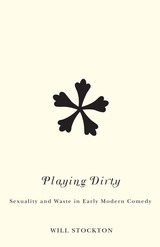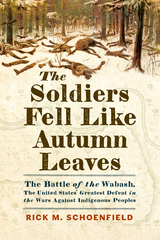
This provocative study provides a radically new perspective on Ben Jonson's comedies. Robert Watson's theory of the “parodic strategy” offers a solution to many of the most perplexing cruxes of Jonson criticism. By betraying the expectations of his characters and his audience, Jonson subsumes and chastises his rival playwrights, and seizes territory within the dramatic genre for his special form of satiric city-comedy.
He builds his complex plots out of the wreckage of more conventional works, in a way that allows him to criticize and combat not only his literary competitors, but also the histrionic tendencies of Renaissance English society. This view of Jonson's notorious borrowings has broad implications for the staging and editing of the comedies, as well as for scholarly criticism. It reveals a Jonson who is more coherent, more consistently funny, and more modernistically aware of the conventions and paradoxes of his medium than has generally been supposed. Watson's approach allows him to reorient major comedies such as Volpone, The Alchemist, and Bartholomew Fair, and to rehabilitate the later works that have commonly been dismissed as “dotages.” Ben Jonson's Parodic Strategy thus provides fresh and vivid insights into Jonson's changing attitudes toward popular culture and toward his own censorious critical persona.

A Midsummer Night's Dream, in its "perfection," is Tave's point of departure. Its characters fall neatly into the three groups of Tave's title and fulfill to perfection their functions of desire, foolishness, and power. From the magical concord of Shakespeare's resolution, Tave moves to works whose character face ever greater difficulties in reaching a happy conclusion. From Jonson and Austen to Chekhov and Beckett, he meets comedies on their own terms, illuminating the complex and individual genius of each. A masterpiece of practical criticism, Lovers, Clowns, and Fairies rediscovers the pleasure of reading comedies.

Noting that psychoanalysis has traditionally operated in a paranoid framework that relentlessly produces evidence of the same “truths,” Stockton turns to a minority practice in psychoanalysis—associated with Jean Laplanche—to develop a more “playful” analytic for literary studies. This analytic brings together different discourses of sexuality and the body and allows individual writings to reform psychoanalytic wisdom about sexuality, waste, and comedy. Through original explorations of works by William Shakespeare, Ben Jonson, Sir John Harington, Thomas Nashe, and Geoffrey Chaucer, Stockton further encourages the reconciliation of psychoanalysis and queer historicism. He focuses in large part on the less-often-read texts of the early modern English canon, assessing the ways in which these books have been purged from the canon in the name of generic purity.
Playing Dirty builds on recent calls by Renaissance and medieval queer scholars for a method of literary analysis that is less constrained by the boundaries of periodicity and the supposed exigencies of historicism. To take Playing Dirty seriously is to accept its invitation to “play”—to queerly disrupt the modern divide in moving promiscuously between texts past and present.
READERS
Browse our collection.
PUBLISHERS
See BiblioVault's publisher services.
STUDENT SERVICES
Files for college accessibility offices.
UChicago Accessibility Resources
home | accessibility | search | about | contact us
BiblioVault ® 2001 - 2024
The University of Chicago Press









